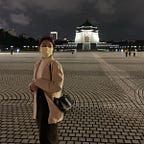The economic dilemma we are facing: complex inflation
Have you checked the electricity bill this month? Have you noticed that the recent expenditure is higher than before?
I’ve been observing the phenomenon of global inflation since the Russian invasion of Ukraine. The data reflecting the situation of European market especially crazily reached a historical high in these months. Nevertheless, some experts pointed out the inflation curve had already gradually slowed down. This caused a misunderstanding that all difficulties would pass away soon. However, I want to tell you that things will not go easily as we hope.
The core idea of this short article argues that the economic dilemma has never been overcome easily, especially when the evidence of such an argument is displayed in front of our sights. In the following paragraphs, the focus on the evidence, how India banned the wheat exports to worsen the situation, will be mainly emphasised.
In addition, not only in India, but the author also intends to disclose that more and more governments set the trading obstacles to protect their own interests. This situation will eventually lead to a mess of consequences.
On May 16, wheat prices surged to a new record high in European trading after India decided to ban exports of the commodity as a heatwave hit production. According to the news report published by France 24, it said that Indian government banned experts while they faced less wheat production and a huge domestic population to protect their own food security. As the second-largest wheat producer, India has seen a sharp rise price of wheat, so it took action to avoid the crisis of food shortage which is highly possible in the global inflation situation.
Put ourselves in the Indian government’s shoes, it is reasonable that forbidding treasurable recourse export to maintain its own profit and interest is what a political power centre should do.
To be honest, India is not the only one to act similarly. A few weeks ago, Indonesia, the world’s largest supplier of palm oil set a blanket ban on exports, including palm oil. As same as wheat, palm oil is another sort of domestic necessity that is widely applied to the food reproduction industry around the world.
In a recently unstable situation, the price of palm oil has also increased extremely high, however, based on the political consideration, Jakarta had no choice but to ban its export. James Guild who posted a commentary on The Diplomat said, “the domestic market needs to be supplied first and at affordable prices, even if it forces exporters to leave profits on the table”.
To sum up, international inflation is not a simple question to deal with; for sure, it could be worse through a chain of actions that the governments take to protect their country’s interests. There is one thing people must bear in mind to take all alarms of the economic crisis as serious; otherwise, a single spark can start a prairie fire.
Hi! I am a content writer from Taiwan, named Hsuan-hsuan Wu. Graduating from SOAS in 2020, now, I am a project assistant at a Taiwanese think tank, the Institute for National Defense and Security Research (INDSR). Wide interests in such IR, political history trajectory, economics and many other social science fields lead me to write different types of articles. Hope you enjoy and welcoming to leave comments below!
